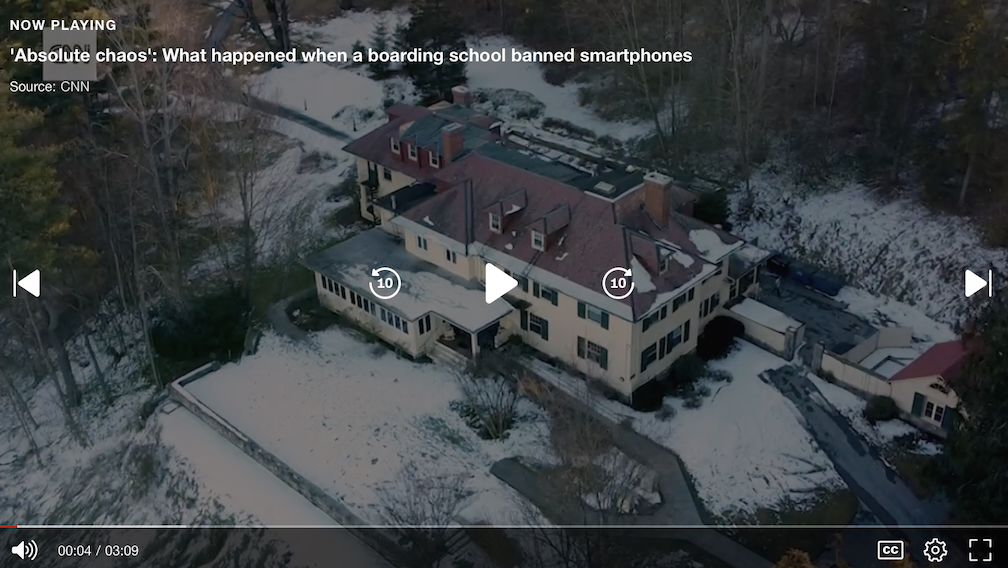High School Counselor Week
Weekly stories, facts, trends, and other information from around the country
March 21, 2024
Education Department plans to ramp up transmission of FAFSA data to colleges
K-12 Dive – March 14, 2024
The agency also announced it had fixed a number of glitches preventing applicants from submitting the form, including students without Social Security numbers and those born in 2000. However, the department also flagged new issues with the form.
Just 47% of public schools rate themselves highly on college prep
K-12 Dive – March 19, 2024
Schools in high-poverty neighborhoods were less likely than more affluent schools to say they did an ‘excellent’ or ‘very good’ job at college preparation. Schools with higher populations of students of color, those in high-poverty neighborhoods, those in rural areas, and those with fewer than 1,000 students reported offering fewer AP courses on average. A higher percentage of high schools said they did a ‘good’ or better job preparing students for the workforce (86%) than for college (77%).
Students to have lower lifetime earnings, graduation rates as a result of lower achievement
K-12 Dive – March 14, 2024
Economists estimate the pandemic’s impact on academic performance could result in a $31 trillion hit to the nation’s economy over the rest of this century.
 Working With Disappointed Students
Working With Disappointed StudentsPost – March 20, 2024
Counselors’ Corner with Patrick O’Connor, Ph.D.
 Top 10 Biggest Mistakes Parents Make on Campus Visits
Top 10 Biggest Mistakes Parents Make on Campus Visits
Post – March 20, 2024
College Advice & Timely Tips with Lee Bierer
Grocery cards and car repairs: How COVID aid changed the way schools can help homeless kids
Chalkbeat – March 14, 2024
Mollie Eppers tried for years to give students experiencing homelessness prepaid grocery cards that would allow their families to shop for food. But the student services specialist in Juneau, Alaska, couldn’t devise a system that would satisfy the spending rules for both her local school district and the federal program that helps homeless students. So when Congress sent schools COVID aid for homeless students with fewer restrictions, Eppers knew her first order of business: Get the grocery cards. Across the country, Eppers and other school staff are doing things to help homeless students that they’ve never been able to before. But schools might stop doing this soon — unless federal officials spell out that other funds can be used like this, too.
Opinion: The Republican agenda to install religious chaplains in schools is appalling
MSNBC – March 17, 2024
This radical movement began in 2023 in Texas with a bill that allows school districts to bring chaplains into schools for counseling students. The Texas bill required school districts to vote on whether to bring chaplains into their districts, and the largest school districts in the state have voted no. But it has spurred copycat legislation in at least 14 other states. In Florida, a similar bill’s requirements for serving as a volunteer chaplain are virtually nonexistent, with no credentialing required. A chaplain only has to pass a background check and have their name and religious affiliation listed o the school’s website. School districts will be picking and choosing religious figures to come onto campus to provide children with services that would typically be carried out by a school counselor — guidance on issues such as academics, relationships, mental health, trouble at home, bullying and future career ideas. Republican lawmakers have argued that chaplains provide a suitable — if not superior — alternative to trained school counselors. ‘I believe that sometimes the issue is with the soul and not of the mind, and that’s why I believe that this is a good option for our students in today’s day and age,’ FL state Sen. Danny Burgess said of the bill. But public schools inviting chaplains onto campus raises obvious First Amendment questions, and such bills are a dreadful new experiment in tearing down the wall between church and state.
Let’s Talk About Mental Health: Supporting mental health in kids and teens
Explore Big Sky – March 19, 2024
Parents are important partners in supporting their child’s mental health. Certainly, the most important building blocks of healthy self-care are consistent sleep, exercise and a nutritious diet with good hydration. However, there are other important habits that can help children and teens to build resilience. As a pediatric neurologist who focuses on neurobehavioral diagnoses, I often provide these five tips to families:
 ‘Absolute chaos’: What happened when a boarding school banned smartphones
‘Absolute chaos’: What happened when a boarding school banned smartphones
CNN – March 17, 2024
How long can you last without checking your phone? Administrators at Buxton School, a small private boarding school in Massachusetts, announced a ban on smartphones in 2022. Meet the teens who adapted to life with less social media and gained a new perspective on their relationships with devices.
5 Pitfalls To Avoid If You Want To Get Into The Ivy League
Forbes – March 20, 2024
While it is important to understand what you should seek to do in order to build your admissions profile, it is equally important to know what not to do. Understanding common pitfalls will help students to take advantage of their high school experience and avoid mistakes that many Ivy League hopefuls commonly make.
School Founder’s View: Why Harvard Should Lead the Way in Scrapping the College Admissions Essay
The 74 – March 15, 2024
Matthew Levey reflects on the ‘spawning of a racist tool’ at the university in 1926.
The 16 worst-paying college majors, five years after graduation
CNBC – March 16, 2024
Students who major in liberal arts, performing arts and theology earn the lowest salaries within five years of graduating from college, a recent New York Federal Reserve analysis reveals. All three majors made a median annual income of $38,000, the lowest out of the 75 majors in the study. Other low-paying majors include leisure and hospitality, history, fine arts and psychology, all of which made $40,000 or less per year. For context, that’s slightly less than the U.S. personal income median of $40,480 as of 2022
The Politics of College Choice
Inside Higher Ed – March 14, 2024
Survey data released today from Gallup and the Lumina Foundation show that state policies—especially on hot-button issues like reproductive rights and gun control—can have a big impact on where prospective students enroll. That’s true across racial, geographic and even partisan lines. 85% of Democrats said they preferred to go to college in a state with open abortion access, as did 63% of Republicans; 91% of Democrats would opt for a college with restrictive gun policies, as would 71 % of Republicans. Lumina said that commonality was the most surprising and poignant finding of the survey. A representative noted that gun control and abortion rights disproportionately impact young people, many of whom grew up in an age of liberalized sexual and religious mores as well as heightened anxiety about school shootings.
Long-awaited FAFSA fix means students from immigrant families can finally finish aid applications
Chalkbeat – March 18, 2024
Many students breathed a sigh of relief last week when federal education officials announced critical fixes to the federal application for financial aid that allows parents without Social Security numbers to contribute information to the form. The change means tens of thousands of U.S. citizen students and others who are eligible for federal financial aid can finally complete their FAFSAs. But it also leaves families and college counselors scrambling to get through the process months after other students. And some families are still encountering problems.
How to Avoid Scholarship Scams
U.S. News & World Report – March 15, 2024
Experts say it’s imperative that students and families use discernment when vetting scholarships and providing personal information. Scholarship scams are often a ploy to gain someone’s personal information and relentlessly market to them or potentially sell their information to other companies. In more egregious cases, scammers may look to obtain someone’s bank account information or Social Security number, which could have more serious ramifications. Here are ways to spot and avoid potential scholarship scams.
How the manufacturing industry is working to interest high schoolers
K-12 Dive – March 19, 2024
As labor constraints continue to plague the U.S. manufacturing industry, many companies and states are turning to high schools to recruit and train future talent.
What are microcredentials? And are they worth having?
The Conversation – March 20, 2024
As private firms and governments struggle to fill jobs – and with the cost of college too high for many students – employers and elected officials are searching for alternative ways for people to get good jobs without having to earn a traditional college degree. Microcredentials are one such alternative. But just what are microcredentials? And do they lead to better jobs and higher earnings? As a sociologist who has examined the research on microcredentials, the best available answer right now is: It depends on what a person is studying.
Subscribe to our Weekly Emails
Scholarships for Studying Abroad
sponsored by Fastweb
‘Boys are disappearing’ from mental health care as signs of depression go undetected
NBC News – March 17, 2024
Teenage boys are drowning in just as much of the depression and anxiety that’s been well documented in girls. Experts warn that many young men struggling with their mental health are left undetected and without the help they need. Depression in boys may go unnoticed, Ethier and other experts said, because boys usually don’t show it through signs of melancholy typically found in girls. A recent study published in the journal Pediatrics found that while antidepressant prescriptions have risen dramatically for teenage girls and women in their 20s, the rate of such prescriptions for young men ‘declined abruptly during March 2020 and did not recover.’ One pediatrician commented: ‘In males, it’s theoretically possible that this reflects improved mental health, but I’m struggling with that explanation…’
10 Social Issues and Problems That Trouble Today’s Teens
Parents – March 14, 2024
Technology and social media can amplify the struggles teens face, but they aren’t the only issues they encounter. not all teen social issues are linked to the digital world. Teens also are at a higher risk for overdose, might not practice safe sex, and are facing increasing academic pressures. Here’s a closer look at the top 10 social issues teens nowadays struggle with.
College Board declares launch of shorter, digital SAT a success
K-12 Dive – March 13, 2024
More than 200,000 students took the digital SAT at 3,000 test centers in 173 countries. Of those test takers, 99.8% successfully completed the exam and submitted their results through the College Board’s new digital testing app Bluebook. Collectively, more than 400,000 students last week took the digital PSAT 10, which is taken by 10th graders, and PSAT 8/9, which is for 8th and 9th graders.
Editorial: Why it’s smart for universities to bring back the SAT requirement
Los Angeles Times – March 17, 2024
The tests were criticized long before the pandemic as giving an unfair boost to more affluent students who could afford tutoring. And it’s true that scores are closely correlated with family income. But the pause in testing gave colleges a chance to study the issue more closely. They found that SAT scores were extremely effective at predicting whether students would succeed in college.
Opinion: No, the SAT Isn’t Racist
The New York Times – March 14, 2024
For all that we have heard about how standardized tests propagate injustice, the recent decisions at several Ivy League schools are antiracism in action, and should serve as models for similar decisions across academia. Many might find it an awkward fit to label requiring the SAT for college admissions as antiracist. But we must attend carefully to what racism and antiracism actually are, as the words have come to occupy such broad swatches of semantic ground. In this light, the tacit sense of the SAT and similar tests as somehow anti-Black is dangerous.


